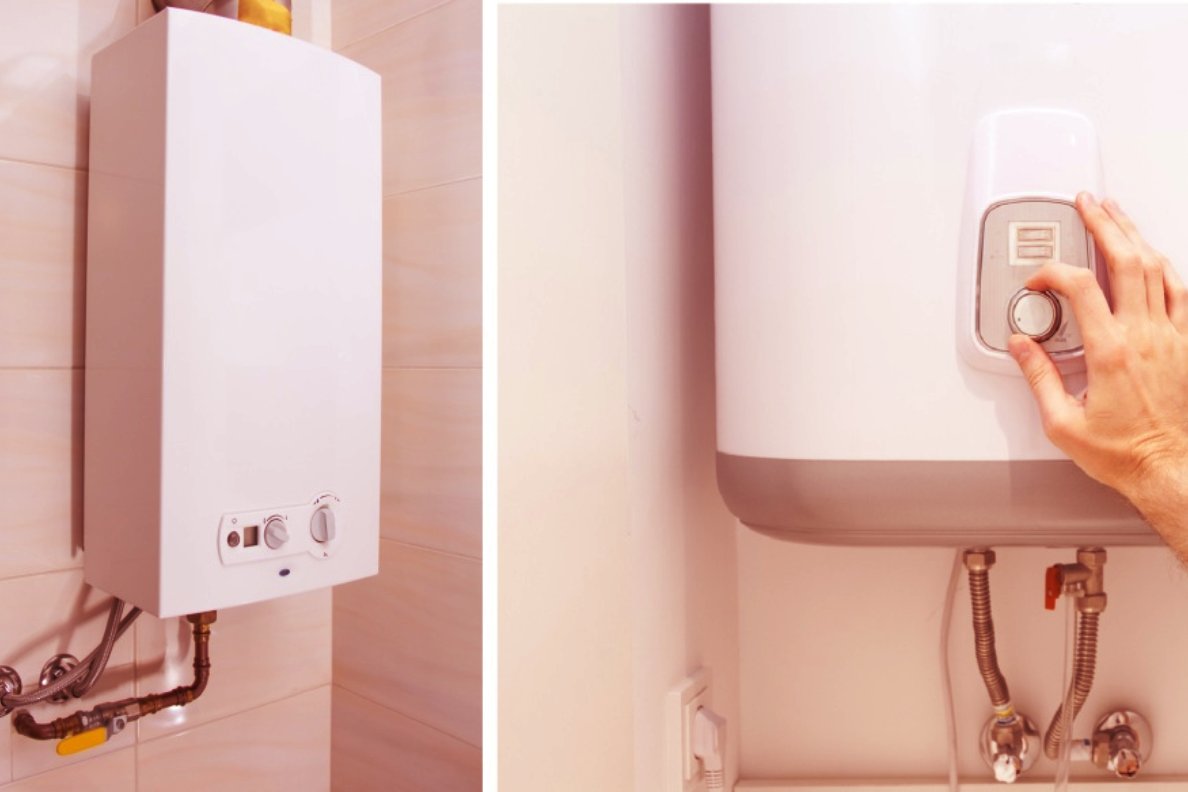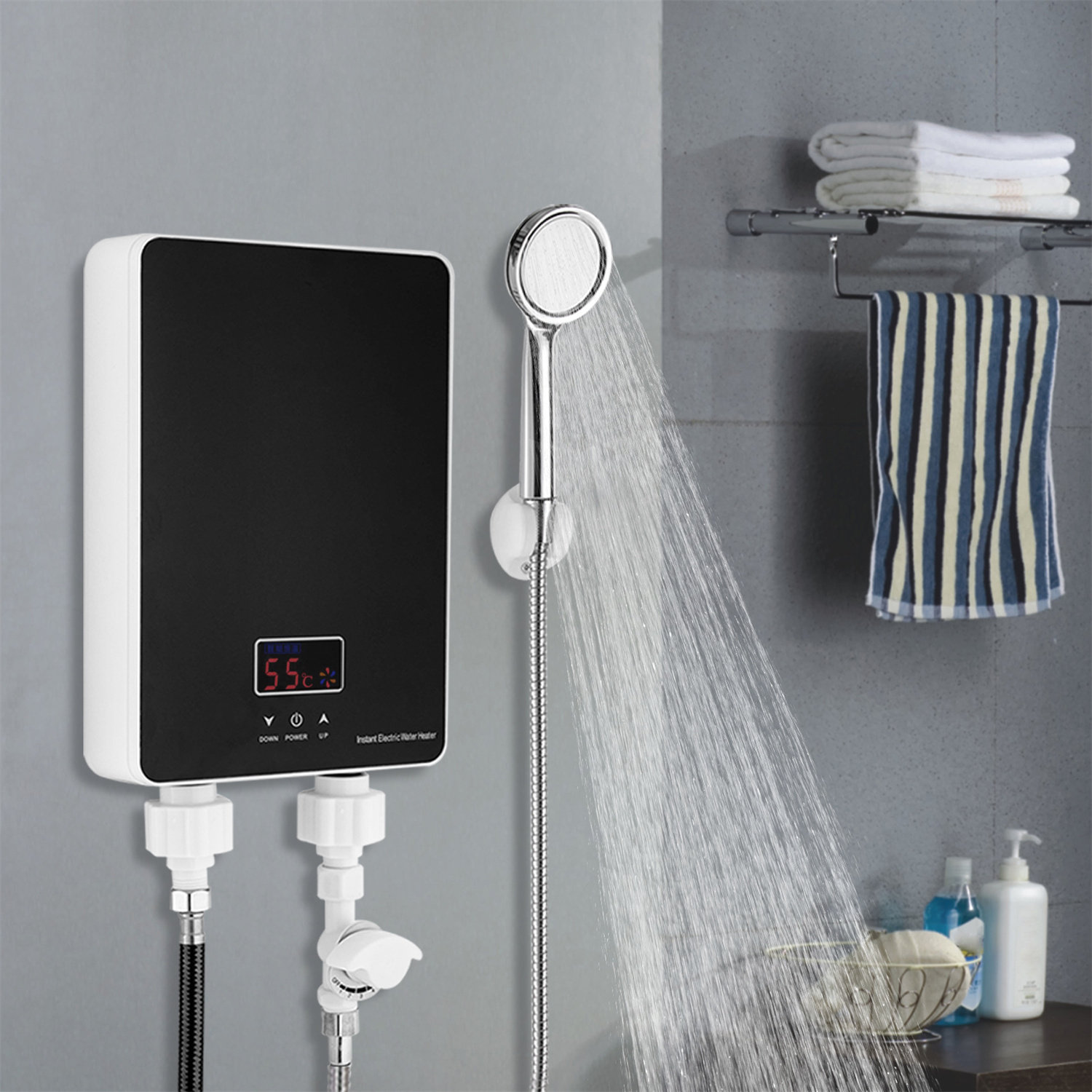Realizing More Value: The Pros Of Smart Water Heaters
Realizing More Value: The Pros Of Smart Water Heaters
Blog Article
We have uncovered this great article on 5 Benefits of Tankless Water Heaters down the page on the web and believe it made good sense to share it with you on my blog.

In a world where comfort and effectiveness preponderate, it's no surprise that home owners are regularly looking for smarter ways to manage their home's energy consumption and comfort. One technology that has progressively gotten appeal is the tankless water heater. But what exactly makes these systems attract attention from the conventional tank-based designs a lot of us grew up with? Let's dive in and explore the advantages of tankless water heaters, aiding you decide if it's time to make the switch in your home.
Introduction
Picture this: you enter the shower after a lengthy day, anticipating a comforting waterfall of warm water, just to be welcomed by icy beads due to the fact that the last individual utilized all of it up. Noise familiar? Traditional water heaters store a fixed quantity of hot water, meaning you're at the grace of that container's supply. Tankless systems, on the other hand, heat water as needed. No more running out mid-shower, say goodbye to fumbling with schedules just to make certain hot water is available.
Comprehending Tankless Hot Water Heater
What Are Tankless Hot Water Heater?
Tankless hot water heater, occasionally called on-demand or instantaneous hot water heater, give warm water just as it's required. Rather than keeping gallons of pre-heated water, these units kick into activity the minute you switch on the tap. Water travels through a warmth exchanger, heating up in real-time, implying you get an uninterrupted flow of hot water without the need for a large tank sitting lazily by.
How Do They Vary from Traditional Systems?
Conventional heating systems hold a reservoir of hot water, using power to keep that tank at a consistent temperature level. Tankless devices remove the standing supply, cutting down on lost energy and the bulky footprint of a large cylinder. Essentially, you're updating from a "accumulation" mindset to a "made-to-order" approach.
Usual Kinds Of Tankless Units
Tankless hot water heater typically are available in two varieties: gas and electrical. Gas models tend to supply greater flow rates, ideal for larger homes, while electrical models typically offer smaller sized homes and are commonly easier to install. Additionally, some systems are designed for point-of-use (serving one component) while others can deal with the whole home's warm water requirements.
Secret Benefits of Tankless Hot Water Heater
Power Efficiency and Expense Financial Savings
Say goodbye to heating up a giant tank's well worth of water and keeping it warm all the time. Tankless heating systems decrease standby power losses, which can lower utility expenses. While the first expense could be higher, the long-term cost savings frequently validate the financial investment.
3. Space-Saving Layout
If your home is short on storage, removing the bulky tank liberates important space. Tankless devices are compact and can usually be mounted on wall surfaces, hidden in edges, or set up in limited utility closets without grabbing all of the entire area.
4. Longer Life expectancy
A properly maintained tankless water heater can outlive its tank-based relative. Traditional tanks might last 10-15 years, while tankless designs can maintain downing along for twenty years or more, making them a solid investment gradually.
1. Limitless Hot Water Supply
Ever before needed to schedule showers so everyone obtains their fair share of warm water? With tankless, that ends up being a thing of the past. As long as the heating system's circulation capability isn't exceeded, you can take back-to-back showers without turning into a popsicle.
5. Improved Water Quality
Saving water in a container can often bring about sediment accumulation or a slightly "off" taste. With tankless systems, fresh water is heated up instantly, lowering the possibilities of sediment accumulation and potentially offering cleaner-tasting water.
Considerations Prior To Switching
Though the benefits are engaging, it's smart to consider a couple of elements before completely devoting.
Assessing Your Home's Water Usage Patterns
If your house all at once utilizes numerous components with high hot water need, make certain the unit's flow price fulfills your needs. Understanding your use patterns aids you select the right dimension and sort of tankless heating unit.
Maintenance and Care Tips
Tankless systems are fairly reduced maintenance, yet they aren't set-it-and-forget-it home appliances.
Regular Cleansing and Descaling
Tough water minerals can accumulate in the warm exchanger, affecting performance. Routine descaling (usually recommended annually) maintains the device performing at peak performance.
Yearly Professional Assessments
A yearly checkup from a specialist ensures minor issues are caught early. They'll evaluate the unit's performance, search for leaks, and help maintain optimal performance.
First Financial Investment Expenses
Tankless heating systems commonly feature a greater in advance price. Between the unit itself and prospective installation alterations, the first expense could offer you sticker shock. Yet remember to watch it as a long-lasting investment.
Setup Requirements
Relying on your home's framework, you could need added electric capability or gas line upgrades. Guarantee you recognize the installment demands and talk to an expert to avoid shocks.
Ensuring Appropriate Air Flow
For gas designs, appropriate air flow is necessary to securely expel exhaust gases. See to it venting systems are tidy and properly installed to stop any potential security hazards.
Contrasting Different Brands and Versions
Not all tankless water heaters are developed equivalent.
Researching Reputable Makers
Seek reputable brand names with a background of creating high quality units. A reliable supplier commonly supplies better client support and longer guarantees.
Installment: DIY or Professional?
While some house owners relish taking on tasks themselves, tankless installation might not be the very best time to break out the toolbox.
Benefits and drawbacks of DIY Installation
A DIY install might conserve money, yet it features dangers. Inaccurate setup can lead to inadequacy or safety and security concerns. If you're handy and have experience, it could be viable-- yet wage care.
Reviewing Testimonials and Customer Responses
Customer testimonials and comments from next-door neighbors or good friends that have gone tankless can provide valuable understandings. Occasionally, real-life experiences can be extra telling than advertising and marketing pamphlets.
When to Call a Professional Plumbing
For most, calling a pro ensures whatever's done correctly. A specialist plumbing technician comprehends regional codes, sizing needs, and venting parameters, minimizing the risk of incidents.
Taking full advantage of Performance
You've purchased a tankless device-- currently maximize its performance.
Ideal Temperature Setups
The majority of people set their systems in between 120-140 F. Changing the temperature can enhance convenience and financial savings. Experiment to find a wonderful area that doesn't throw away energy.
Pairing with Low-Flow Fixtures
Want to stretch your system's capacities? Consider installing low-flow showerheads and faucets. They reduce water use, allowing your tankless system to deliver a constant stream of hot water without stressing.
Environmental Impact
Tankless water heaters straighten with greener living goals.
Decreased Carbon Footprint
By utilizing much less power and only heating water as needed, tankless systems can lower your home's carbon impact, decreasing your ecological influence.
Preserving Natural Resources
Less power intake and much less squandered hot water convert right into less natural resources being used, an ecological win-win.
That Profits Many from Tankless Heating units?
The charm of tankless heating systems is that they can suit a variety of houses.
Large Households vs. Solitary Owners
Large family members could like the endless hot water supply, while single passengers appreciate the energy financial savings from not heating an entire storage tank for simply one person's morning shower.
House Owners with Restricted Space
If your home is short on square video footage, losing the large tank frees up room for various other basics-- or possibly simply more breathing space.
Eco-Conscious Consumers
Going tankless aligns with eco-friendly worths, ensuring you're not squandering power or resources.
Future Fads in Tankless Water Heaters
The globe of home appliances is ever-evolving, and tankless hot water heater are no exception.
Advancements in Technology
R&D is regularly improving warm exchangers, making systems extra efficient and long lasting. Future models might be also quieter, much more compact, and much better matched for differing climates.
Smart Home Integration
Picture adjusting your hot water heater's temperature level through an application or getting upkeep signals on your phone. As clever home technology advancements, we'll see more connectivity and ease.
Verdict
Selecting a tankless water heater is more than simply updating your home's hot water system; it's investing in long-term comfort, power performance, and a greener way of life. By considering your family's water usage, being mindful of installment requirements, and devoting to routine upkeep, you can take pleasure in a stable stream of warm water without the baggage of a cumbersome storage tank. As modern technology develops, you can expect even smarter, a lot more efficient tankless services that not only make your life simpler yet additionally profit the planet.
Six Benefits of a Tankless Hot Water Heater
Continuous hot water. Large families know what a pain it is to hop into the shower and get blasted with cold water. With a tankless hot water heater, this doesn't happen as long as you install the right size tank. Even if you don t have a large family, a tankless hot water heater allows you to use multiple appliances at once without running out of hot water. Reduced energy bill. Because tankless heaters are essentially "off" when the water tap is not on, they use less energy overall. In fact, an ENERGY STAR-qualified tankless hot water heater can use 25-40% less energy than a conventional water heater, and save the average family $100 or more annually. Longer life. Get more bang for your buck with a greater lifespan. Specifically, conventional hot water heaters last about 10-13 years compared with up to 20 years for a tankless hot water heater. Less space. Did you know that tankless hot water heaters can be hung on a wall almost anywhere in your home? Plus, at 28" tall by 20" wide and 10" deep, a tankless hot water heater takes up a lot less space than a conventional hot water heater, which is 60" tall and 24" wide. Good for the environment. In addition to reducing the amount of energy used, most propane-fired tankless water heaters are made of recycled materials. Many conventional tanks, on the other hand, go directly to the dump once they've served their purpose. High safety ratings. Conventional water heaters are "always on" and thus pose safety risks more often than do tankless heaters, which only operate when warm water is needed. https://www.rotorooter.com/blog/water-heaters/six-benefits-of-a-tankless-hot-water-heater/

We were guided to that write-up about Six Benefits of a Tankless Hot Water Heater through an associate on another domain. Appreciated our write-up? Please share it. Help another person locate it. We cherish reading our article about Unveiling the Hot Trend: The Benefits of Tankless Water.
Additional Resources Report this page